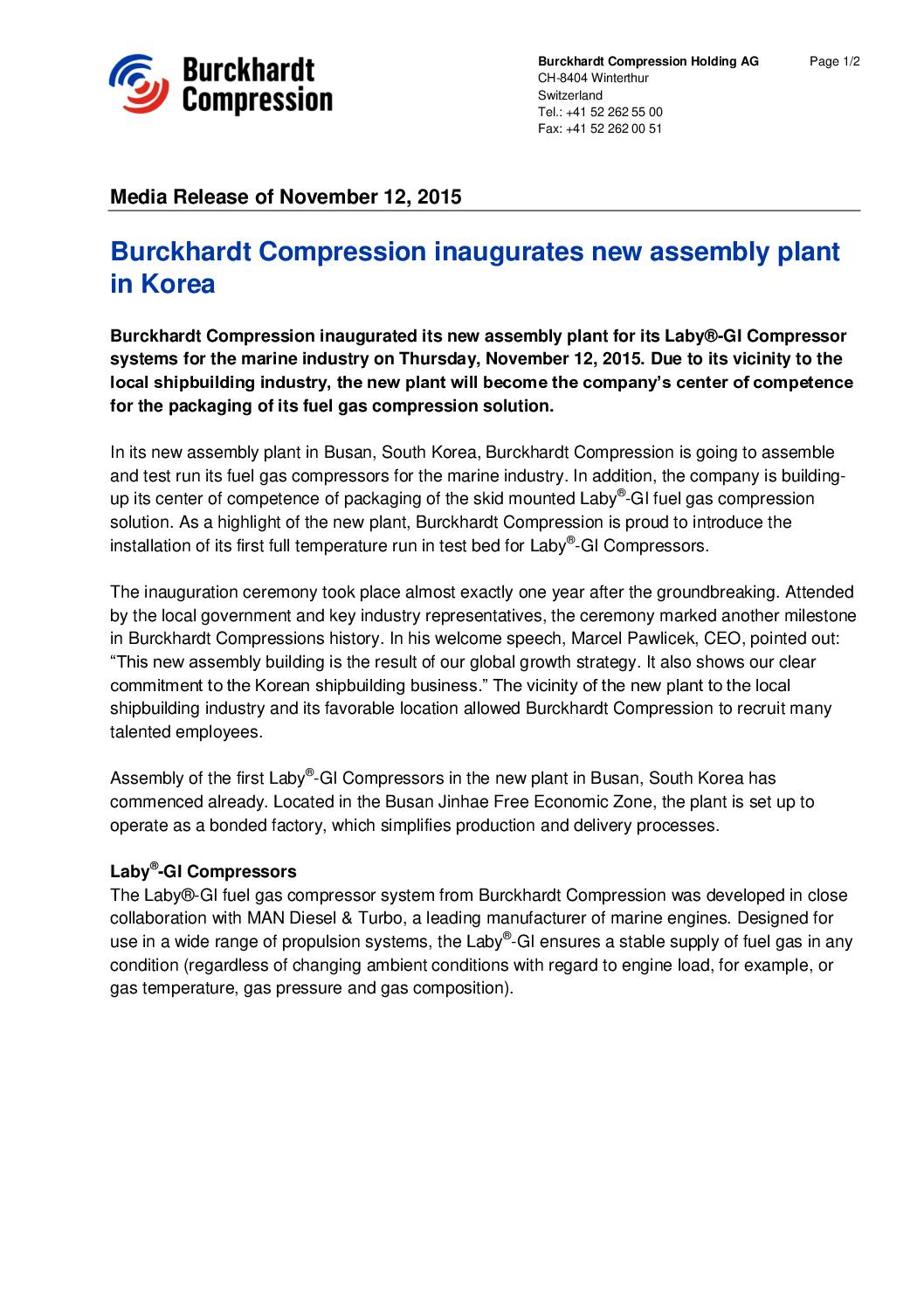November 12, 2015 | Ad hoc announcement pursuant to Art. 53 LR
Burckhardt Compression inaugurates new assembly plant in Korea
Burckhardt Compression inaugurated its new assembly plant for its Laby®-GI Compressor systems for the marine industry on Thursday, November 12, 2015. Due to its vicinity to the local shipbuilding industry, the new plant will become the company’s center of competence for the packaging of its fuel gas compression solution.
In its new assembly plant in Busan, South Korea, Burckhardt Compression is going to assemble and test run its fuel gas compressors for the marine industry. In addition, the company is building-up its center of competence of packaging of the skid mounted Laby®-GI fuel gas compression solution. As a highlight of the new plant, Burckhardt Compression is proud to introduce the installation of its first full temperature run in test bed for Laby®-GI Compressors.
The inauguration ceremony took place almost exactly one year after the groundbreaking. Attended by the local government and key industry representatives, the ceremony marked another milestone in Burckhardt Compressions history. In his welcome speech, Marcel Pawlicek, CEO, pointed out: “This new assembly building is the result of our global growth strategy. It also shows our clear commitment to the Korean shipbuilding business.” The vicinity of the new plant to the local shipbuilding industry and its favorable location allowed Burckhardt Compression to recruit many talented employees.
Assembly of the first Laby®-GI Compressors in the new plant in Busan, South Korea has commenced already. Located in the Busan Jinhae Free Economic Zone, the plant is set up to operate as a bonded factory, which simplifies production and delivery processes.
Laby®-GI Compressors
The Laby®-GI fuel gas compressor system from Burckhardt Compression was developed in close collaboration with MAN Diesel & Turbo, a leading manufacturer of marine engines. Designed for use in a wide range of propulsion systems, the Laby®-GI ensures a stable supply of fuel gas in any condition (regardless of changing ambient conditions with regard to engine load, for example, or gas temperature, gas pressure and gas composition).
